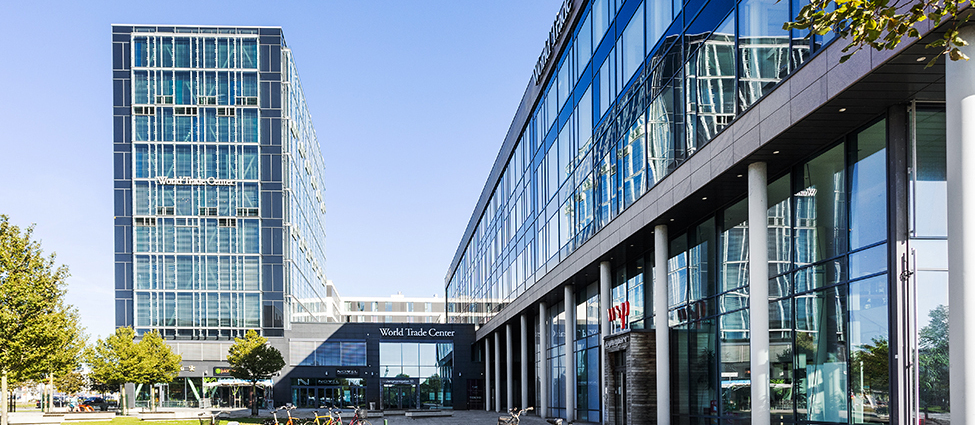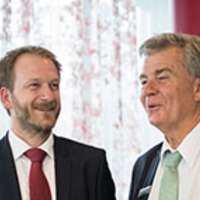

News
SEBs report for world and Nordic economy WTC Malmö

MALMÖ, SWEDEN - The exciting state of the world economy made for an exceptional turnout when SEB’s Nordic Outlook report was presented at World Trade Center Malmö last week. During the launch seminar, economist and lecturer Daniel Bergvall raised themes likes Brexit, the rise of populism and the Swedish economy.
In the year of 2016, two main events color the world’s economic and political climate. The United Kingdom’s vote on EU membership and the fast approaching presidential election in the United States, where it stands between Hillary Clinton and Donald Trump. The effects of Brexit The UK referendum was settled at the start of summer, and Brexit is now a fact.
According to SEB’s Nordic Outlook, the exit clause will be activated by the beginning of 2017. “There are several reasons to be swift with this. One is to decrease insecurities. As long as actors, households and companies don’t know when the UK will leave, how it will happen and what the new relationship with the EU will be like, investments will remain stifled,” says Daniel Bergvall, SEB’s chief of analytics for the Eurozone and Finland.
Despite the lack of clarity around Brexit, SEB does not see any negative effects on the world economy in the long run. In the UK, factors point at an economic deceleration rather than a recession.
Furthermore, SEB holds the position that the decline following the Brexit news has been overblown due to the surprise effect of the results, pointing out that there has been a recovery since. The populist challenge The Eurozone will be affected to an extent. However, the effects of Brexit are perceived as mainly political. In this vein, the report brings up recent drawbacks for the global democratizing process, such as authoritarian trends in Southeast Asia, Trump’s success in the US and the growing support for populist EU-hostile parties in Europe. In turn, these populist trends lead to new possible scenarios for global and European development. Broken trade treaties, a split in the Eurozone, the collapse of the EU and American isolationism spearheaded by Trump are some hypothetical scenarios mentioned by Daniel Bergvall.
Nevertheless, SEB also sees possibilities for pragmatic internationalism and turns in more positive directions. “Globalization has instinctively been used as something generally positive, but structural reform has put many people at risk. How do we see to those who are negatively affected? I believe we will be discussing this a lot more in the future.” Continued growth but big political challenges in Sweden Recent political and economic events should have a limited impact on the Swedish economy, according to Daniel Bergvall. But Sweden also faces political challenges on a national level. SEB highlights this in Nordic Outlook. SEB’s prognosis reports that integration- and employment issues will have the greatest impact on Swedish economic politics in the next few years, and political tensions are predicted to grow along with increased pressure to act.
“The Swedish economy is currently very strong, but it is simultaneously a split economy. There is heavy pressure on expenses in the public sector in regards to public consumption.
Meanwhile, when you look at apartments and investments you see a powerful driving factor for growth right now. In fact, we are almost at the same levels observed during the construction peak at the beginning of the 90’s,” says Bergvall. Copenhagen serves as a lever for the Öresund region A special geographical and economic situation characterizes the Öresund region due to close connections with Denmark.
Daniel Bergvall points out that this makes the region’s development susceptible to the Danish economy as well, adding that the Danish economy is currently going through a recovery centered in Copenhagen. Jan Kulle,
Office Manager at SEB WTC Malmö, has been following the development closely since the opening of the Öresund bridge in the year 2000. “Copenhagen and Malmö have grown closer and the economic growth here is noticeable, not least in Västra Hamnen. There are a lot of things starting up and many ventures. It’s also developing at a more controlled pace than Stockholm, which has grown immensely and heated up quickly,” says Kulle.
Future technology development could change the rules SEB discerns that the international state of the market will successively improve. Daniel Bergvall believes that company production investment should be getting an overall boost as well. Several years with low investment and low interest rates should be leading to a situation where enterprises must begin to invest. “The question is, where will they invest? In what countries? In the long run, automatization and robotizing of production will make it more capital intensive than labor intensive. Salary costs will no longer be as important, and other factors could come into play and be of importance,” says Bergvall.
Such a development could lead to an extensive relocation of productions, which in turn could affect future economic prognoses. SEB Nordic Outlook SEB’s insights and prognosess are gathered in the Nordic Outlook report, presenting SEB’s views on the world economy and the economy in different parts of the world.
The report takes on a two-year perspective in going through important economic and political developments, while delving into what will be driving economic development.
In collaboration with World Trade Center Malmö, SEB arranges two annual Nordic Outlook meet-ups in February and August, where current reports are presented for businesses, students and anyone interested in the state of the world economy.
To view the original article, click on the source link below.